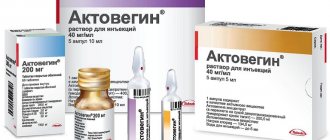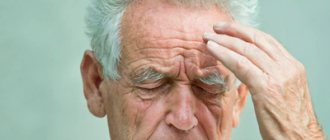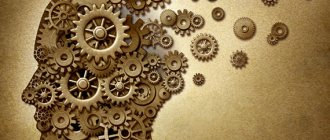Differences Between Alzheimer's Disease and Dementia People have been talking about dementia and Alzheimer's disease (AD) for over 100 years. However, in most cases the difference between them is not clear. Is there a real difference?
The answer is that AD is just one type of dementia, albeit the most common one today, accounting for 60 to 80 percent of cases. Dementia refers to the progressive loss of cognitive abilities or irreversible decline in mental function. Dementia is characterized by chronic memory loss, personality changes and loss of reason and logic. Although forgetfulness is common, especially in busy or rushed older adults, it is not called dementia unless it is so severe that it interferes with daily life.
Etiology
Vascular dementia: Often caused by an acute, specific event, such as a stroke or transient ischemic attack, when the blood supply to the brain is disrupted. The disease can also develop gradually, over a long time, due to the presence of small blocks in the vascular bed (narrowing of the lumens of blood vessels caused by one reason or another) or chronically slow cerebral blood flow.
Alzheimer's Disease: While there are several ways to reduce the likelihood of developing Alzheimer's disease, such as physical activity and keeping your mind active, we still don't know what causes Alzheimer's disease. The prevailing view in medicine today is that there are many components that can contribute to the development of Alzheimer's disease - such as genetics, lifestyle, and various other factors.
Dementia as it is
Dementia (translated as feeble-mindedness) is understood as severe impairment of cognitive functions with a sharp decrease in memory, intelligence and the ability to abstract thinking, emotional impoverishment, personal degradation, reduction or collapse of professional, social and everyday activities. Dementia can be global or focal.
Global dementia is a disorder of all types of mental activity with loss of criticality and personality degradation. Focal dementia - preservation of personality and criticality, but a decrease in intellectual abilities and memory.
The main sign of dementia is impairment of short-term and long-term memory, as well as the presence of at least one of the following symptoms:
- violation of abstract thinking - inability to find similarities and differences between similar words, difficulties in defining words, concepts, misunderstanding of the meaning of proverbs and sayings, inability to solve simple semantic and arithmetic problems, etc.;
- violation of higher cortical functions - aphasia, apraxia, agnosia, constructive-spatial apraktoagnosia;
- impaired judgment - inability to make a purposeful plan, contact with other people, family;
- personal changes - changes or sharpening of premorbid traits, neglect of appearance, apathy, narrowing of interests;
- difficulty in normal social life and inability to work.
Levels of dementia and social activity:
- easy - maintaining the ability to live independently;
- moderate - some degree of care required;
- severe - the patient is completely helpless in everyday life.
Important note: dementia is diagnosed only when there is a combination of intellectual-mnestic disorders and signs of decline or collapse in professional, social and everyday activities. Take note, dementia is not all lost. Especially when we diagnose it in a timely manner. Simply because “he who diagnoses cures.”
Symptoms
Cognitive (cognitive) sphere
Vascular dementia: Cognitive abilities often decline suddenly due to a vascular accident in the brain - such as a stroke or transient ischemic attack - and then remain stable at the same reduced level. These cognitive changes are often described as “steps” because cognitive functioning between such rapid changes can be considered stable.
Alzheimer's disease: While cognitive abilities may change somewhat with the onset of the disease, a person's ability to think and use their memory does decline gradually over time. In Alzheimer's disease, as a rule, there is no history of sudden changes in the cognitive sphere (within one day).
Impaired memory and memory retrieval are typical in the early stages of Alzheimer's disease.
Walking and physical movements
Vascular dementia: Often accompanied by physical problems. For example, if your loved one suffered a stroke, they likely have limited mobility on one side of their body. Both cognitive and physical declines associated with vascular dementia usually develop at the same time, as they are often consequences of the same sudden illness, such as stroke.
Alzheimer's disease: The disease often begins with changes in mental abilities, usually represented by memory loss or decreased judgment. However, over time, when the disease enters the second stage, deterioration of physical abilities is also detected, such as the ability to maintain balance or gait.
Make an appointment with a neurologist:
— If we are talking about dementia, is it an age-related disease?
Not at all. Today, dementia, like other vascular diseases, has become much younger.
- Why does this happen? The food seems to be getting better, and so are the living conditions.
First of all, this is influenced by the environmental factor.
— How can you tell if your loved ones or you yourself are suffering from dementia?
The main signs are memory impairment and impaired perception of reality.
Reversible dementia
— That is, Can you understand whether there is a disease or not by observing a person?
Yes, no doubt. Dementia is a memory disorder, and you need to pay attention to the slightest changes: first you forgot where you put the object, then you forgot where you are. The Hakim-Adams disease I have already mentioned has a triad of symptoms: memory impairment, changes in gait, and urination problems. It is necessary to see this in time and carry out the necessary examination. The neurologist should send for a computed tomography scan to determine whether there is cerebral hydrocele. And this is a situation that can be completely cured. Now there is a concept that is very widespread in Europe and which we are now closely studying - this is reversible dementia, when through a neurosurgical operation the outflow of cerebral fluid is restored, the cerebral hydrocele goes away, and the patient recovers.
— What about such an everyday concept as “drank my brains away”?
There are two concepts: cerebral hydrocephalus and atrophic hydrocephalus - these are completely different conditions. This is another type that causes memory impairment. The reason for its appearance is harmful enterprises, salts of heavy metals, alcoholism...
- Is it reversible?
This is reversible in a different way, not completely, but memory training and sessions with a neuropsychologist lead to the fact that the situation improves significantly.
- But not every patient is taken on now, and very often they say: “Look how old your grandmother is”...
This is the wrong approach. Nowadays, many programs for cognitive training have been developed, which greatly change the fate of such patients!
— There is a question: I have been shaking my head for 10 years, I am 45 years old, they diagnose idiopathic cervical dystonia, the tonic-clonic form. Is this somehow transmitted and where does it come from?
This is a slightly different form. There are idiopathic disorders associated with genetic diseases of the subcortical nuclei, and there are vascular diseases. Here you need to go to a neurologist and undergo an examination to understand this.
Replenish your iron!
— Against the background of oncology, accompanied by severe iron deficiency anemia, can dementia develop?
Another group of factors that cause dementia is changes in the metabolic and electrolyte composition of the blood. In particular, a decrease in iron also leads to dementia, and normalization of iron leads to the fact that these phenomena go away. Iron must be replenished.
— One more question: my mother, 66 years old, has dementia. Should we think about heredity?
It's a must. If there is a patient with dementia in the family, then the relatives must undergo an examination.
- Who is more susceptible to this disease, men or women?
It is believed that this disease occurs more often in women, although I think that statistics are poorly maintained in our country.
What causes dementia?
— Besides Hakim-Adams disease, are there any other diseases that cause dementia?
We have already listed all the main groups that cause dementia: these are genetic dementia, Hakim-Adams disease, atrophic hydrocephalus, most often caused by toxic substances, and iron deficiency, mentioned in one of the previous questions.
— What to do if a 72-year-old woman began to show the first signs: she began to talk, to forget herself?
First of all, cognitive training is needed to restore memory. And there is no need to be afraid that these are some special classes with neuropsychologists. Such programs exist, and neuropsychologists work well with them. But when dementia is just beginning, you just need to memorize pictures, memorize poems, start retelling texts - this is memory training.
— How do you feel about the fact that statins are prescribed for cholesterol disorders?
This topic is now being discussed several times, including at the recent congress in Barcelona. It seems to me that this is some kind of aggression from the pharmaceutical business. It is necessary to look at what a cholesterol disorder is, what the patient’s weight is, what his liver function is. And sometimes, normalizing the diet leads to a reduction in cholesterol disorders, without the use of a statin.
— Is it true that statins can cause dementia?
Statins act on muscle tissue and the membrane, and the brain and heart are the same muscle tissue.
Victor Alexandrovich, thank you very much, it was very interesting!
Diagnostics
Vascular dementia: Some psychological tests can help assess your loved one's memory, judgment, communication and general cognitive abilities. In addition to these tests, MRI (magnetic resonance imaging) of the brain can clearly show the specific area of the brain that was damaged due to a stroke or transient ischemic attack.
Alzheimer's disease: Similar cognitive testing is used for Alzheimer's disease. Otherwise, this disease is diagnosed by excluding similar pathologies, since at present it is impossible to establish an accurate diagnosis by any instrumental or hardware research, for example, by scanning the brain. There is currently no reliable diagnostic test to diagnose Alzheimer's disease, so doctors rule out other, reversible causes of the disorder - such as vitamin B12 deficiency or hydrocephalus with normal intracranial pressure, as well as other types of dementia or delirium.
To... "nearby"
It is impossible to embrace the immensity. Therefore, in order to better understand the essence of brain dysfunction in the whole variety of somatic diseases, we will focus our attention on cerebrovascular insufficiency (dyscirculatory, vascular encephalopathy, angioencephalopathy).
At its core, as can be seen from the definition, is a progressive deterioration in the blood supply to the brain. Clinical symptoms of cerebrovascular insufficiency look like this:
- increase in cognitive impairment: decrease in memory, attention, intelligence with outcome in dementia;
- emotional impoverishment, loss of interest in life and narrowing of interests;
- static disturbances, destabilization of tempo, rhythm and coordination of movements, increased tendency to fall;
- development of a shuffling, mincing gait with small steps, up to the loss of the ability to walk;
- subcortical parkinson-like syndrome, in some cases with slowness of movements, poor facial expressions and a slight increase in tone of the extrapyramidal type;
- pseudobulbar disorders of varying severity with dysarthria, dysphagia, violent laughter and crying, positive symptoms of oral automatism;
- sometimes mild and moderate paresis of the limbs;
- gradual development of disorders of control over the function of the pelvic organs;
- social maladaptation, narrowing of the circle of interests and spontaneity in old age.
It is based on cognitive impairment that cerebrovascular insufficiency is divided into the following three stages or degrees of severity:
- decreased working memory, increased mental fatigue, frequent headaches, irritability, moderate disturbances of mnestic activity, decreased performance while maintaining social and everyday activity;
- worsening memory impairment with a decrease in attention and performance, an increase in intellectual and emotional disorders, the possible appearance of mild subcortical and pseudo-subcortical disorders, gait disturbances;
- dementia of varying degrees with social maladaptation and personality degradation, pseudo-bulbar and subcortical disorders, gait disorders, pelvic disorders.
Did you notice?! In cerebrovascular insufficiency, cognitive impairment is the “head of everything.” And yet, dementia is just a stone’s throw away.
Forecast
Vascular dementia: Due to the huge variety of causes of damage and the varying severity of these damage in brain structures, it is difficult to predict life expectancy for patients with vascular dementia. The progression of vascular dementia depends on a number of factors, including the extent of damage to the brain.
Alzheimer's disease: The average life expectancy for people with Alzheimer's disease is 84.6 years, and the life expectancy after the first symptoms appear is 8.4 years.
Sources:
Alzheimer's Association. Risk Factors. Accessed July 31, 2012. https://www.alz.org/alzheimers_disease_causes_risk_factors.asp
Alzheimer's Association. Vascular Dementia. Accessed June 26, 2012. https://www.alz.org/dementia/vascular-dementia-symptoms.asp»>https://www.alz.org/dementia/vascular-dementia-symptoms.asp
Clin Interv Aging. 2006 September; 1(3): 229-235. Vascular dementia: prevention and treatment. https://www.ncbi.nlm.nih.gov/pmc/articles/PMC2695177/
Geriatrics and Aging. 2007;10(1):36-41. Vascular Dementia and Alzheimer's Disease: Diagnosis and Risk Factors. Accessed July 31, 2012. https://www.medscape.com/viewarticle/555220_1
https://alzheimers.about.com/
All materials on the site are presented for informational purposes only, approved by a certified physician, Mikhail Vasiliev, diploma series 064834, in accordance with license No. LO-77-005297 dated September 17, 2012, a certified specialist in the field of psychiatry , certificate number 0177241425770.
Treatment and patient care
Therapy for Alzheimer's disease includes a set of measures, including drug treatment, psychosocial correction, and patient care.
There are no medications that can cure the disease. To treat cognitive impairment, doctors prescribe chemicals from the group of inhibitors that can delay the course of physiological processes in the body, as well as NMDA receptor antagonists, designed to reduce the manifestation of negative symptoms.
Behavioral correction involves the use of art therapy, music therapy, communication with animals and stimulation of any type of activity in the patient. The goal is to improve the patient’s quality of life.
No care is required at first. We are talking only about help in performing certain functions, possible tips. Relatives cope with this successfully. But in the last stages of Alzheimer's disease, the patient requires complete care. If relatives do not have the opportunity to constantly be with the patient, a nurse is hired for these purposes. Many people choose help from specialized institutions.
A good example is the private boarding house “Idyll” in Yekaterinburg. The cost of the stay is comparable to the pension of many patients. The institution employs doctors and medical staff who are well acquainted with the specifics of diseases such as Alzheimer's disease. Elderly people are provided with 24-hour care. Restorative and cultural events are being carried out.
Dementia treatment
Despite numerous studies and increased attention from the scientific community to this disease, there is no cure for dementia yet. Medicines are at various stages of clinical trials. It is important to diagnose the disease as early as possible, take care of the patient’s physical health, and, for prevention, train one’s cognitive abilities.
For example, in dementia due to Alzheimer's disease, cholinesterase inhibitors and memantine are used to relieve cognitive symptoms. The patient may be prescribed medications to manage behavioral or psychotic symptoms.
Research shows that the risk of disease can be reduced by exercising regularly, giving up bad habits (smoking, alcohol), controlling your weight, eating right and monitoring your blood pressure, cholesterol and blood sugar levels. Other risk factors for developing this disease include depression, low education, social isolation and lack of cognitive activity.
Back to articles










